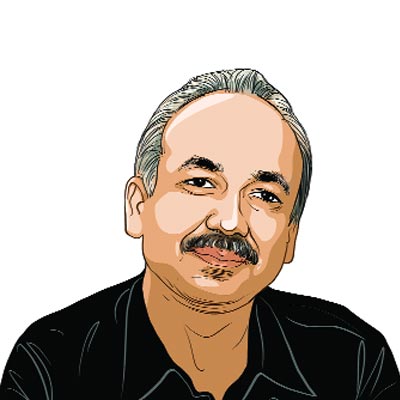Opinion King and country
As disillusionment about the big three political parties rises,conservative and pro-monarchy forces are on the make...
The Constituent Assemblys political legitimacy is being intensely debated,after the house chose to extend its own tenure despite having failed to deliver the constitution by the rigidly prescribed deadline,May 28.
The Rastriya Prajatantra Party Nepal (RPP-N),with four members in the 601-strong house,declared the extension wrong on both political and moral grounds,although its national executive did not endorse the majority demand that its members quit this illegal house.
The party spoke from a Hindu right-wing plank,demanding that the matter of whether the country became a federal republican and secular Nepal or reverted to a unitary Hindu monarchy,be settled only through a referendum.
Its decision to come out openly as a Hindu and monarchist party comes at a time when the parties that undertook to write the new constitution institutionalising the three new identities failed to do so within the mandated life of the house.
But the Unified Communist Party of Nepal-Maoists (UCPN-M),which still insists that its joining the peace and democratic process is only tactical,and that it has not given up its ultimate goal of establishing a peoples republic peacefully if possible,and through violence if necessary,has clearly not surrendered the revolutionary space to other groups or forces.
As resentment against the three big parties the Nepali Congress,the Communist Party of Nepal-Unified Marxist Leninist (CPN-UML) and the UCPN-M mounts,RPP-Ns assertion against their policies is understandable. The party is clearly banking on a groundswell of opposition against these parties,which monopolised power and policy in the last four years,and failed to resist blatant foreign interference in domestic affairs and speculation over Nepals unity and integrity.
The strongly pro-Maoist national media has also started giving space to news and views in favour of the monarchy,their simple lifestyle,and the former sense of public security and national integration. RPP-N chief Kamal Thapa claimed that the Maoists have realised their mistake in abolishing the monarchy and are now in favour of a cultural monarchy. The claim is yet to be endorsed by the Maoists although its senior leaders have met various pro-monarchy leaders,and have been trying to meet former King Gyanendra,who has apparently asked them to first make their position vis a vis the monarchy public.
The conflict for a decade until 2006 was followed by rising expectations that Nepal would be a stable democracy and prosperous economy. With the death of that hope,more and more Nepalis are seeking better opportunities abroad. Official assessments show that more than five million Nepalis are working abroad,including in the Gulf. The process remains unabated,as another 3.5 million face food scarcity this year. The earlier trend of well-settled Nepalis abroad returning home to contribute their expertise has now stopped altogether,because of the chaos and uncertainty. As a result,Nepalis living abroad nearly a fourth of the countrys population of 2.8 million have more stakes in the stability and prosperity of the countries they work in,than in Nepal. This reduced investment of Nepalis,though they contribute nearly 17 per cent of the GDP also allows the international community,and donors (which contribute about 5 per cent of the GDP) and the business community (which contributes 2 per cent through taxes),a greater space in policy formulation.
Clearly,the exclusion and indifference of vast sections,including the middle classes and the disadvantaged,from the sphere of politics and policy formulation both dilutes national feeling and plays into elite hands. The UCPN-M however,is the only party that mobilises Nepali migrants and labourers abroad and collects money from,almost like Sri Lankan Tamils once did.
The RPP-N,in a way,has taken these factors into account and indirectly challenged the influence of outside actors by asserting that the three new identities of federalism,secularism and republicanism are concepts borrowed from there. But it is clearly coasting on the others failure and unpopularity rather than putting forth its own organisational ability and vision. The upside,however,is that large numbers of people,who live in the country despite all the instability ,have begun acting like active stakeholders warning political parties that they are not indispensable and would not be forgiven for missing the historic opportunity to deliver a constitution consolidating peace and democracy and opening new vistas for Nepals economic growth. The days to come will sorely test Nepals political parties.
yubaraj.ghimire@expressindia.com


